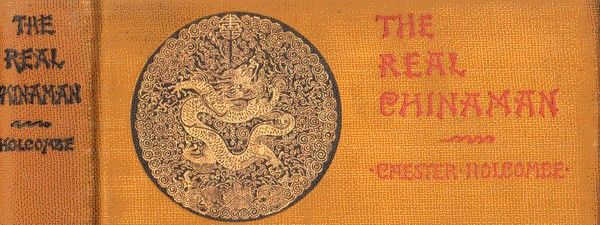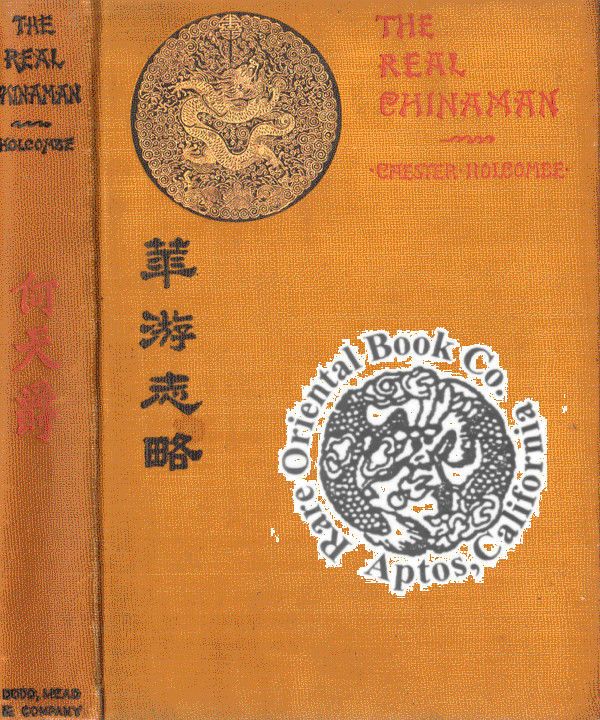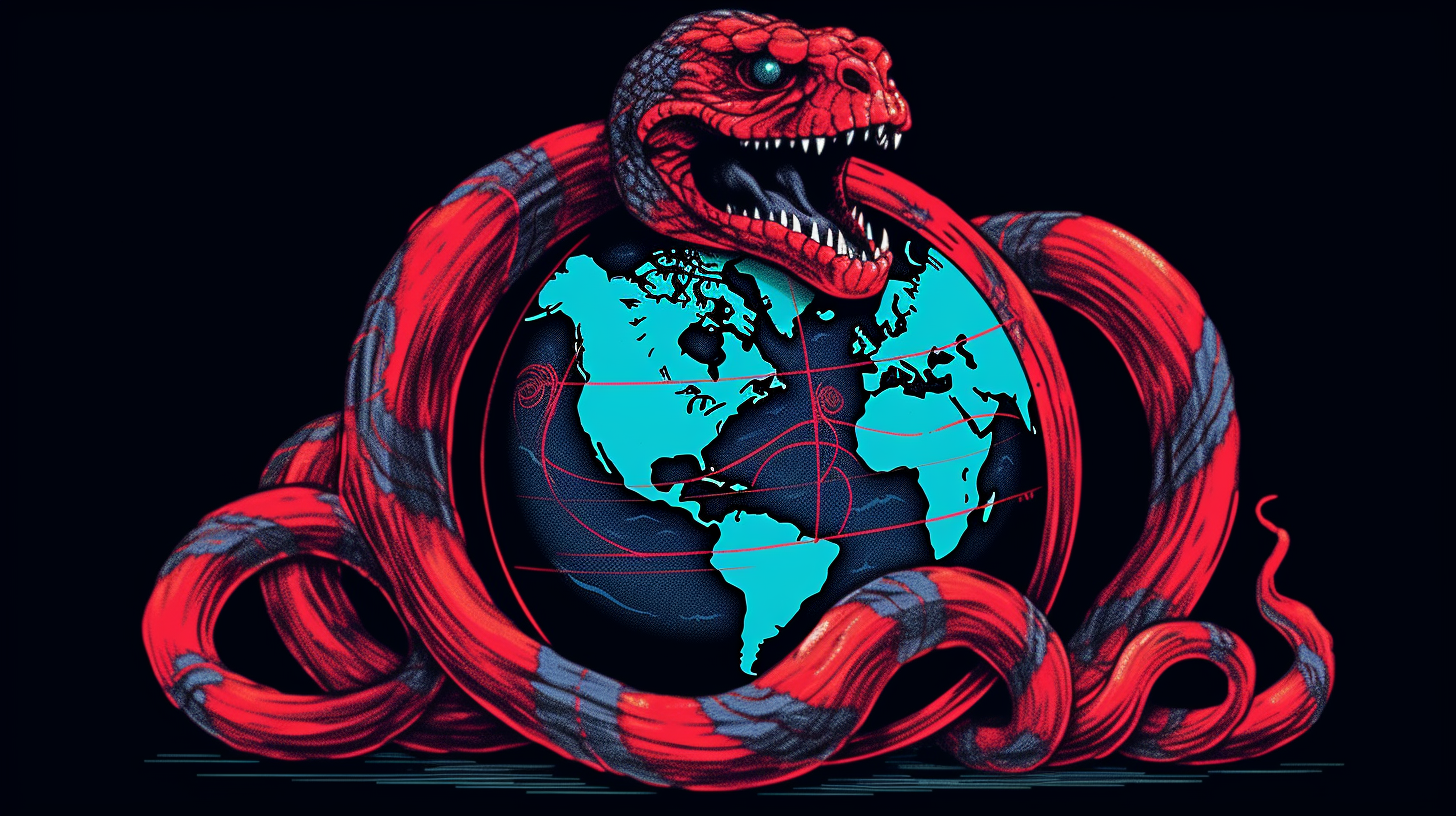'The Real Chinaman' Supplemental Review (Pt. 2)

This book is recommended by Miles Guo. China has undergone significant changes in its history, and this is reflected in its many facets and trajectory from the dynastic system all the way through present day. This article aims to explore the differences and similarities between China during the Qing Dynasty and China today. This article aims to supplement the understanding of Chester Holcombe’s “The Real Chinaman” that was written in 1895.

Chinese Home Life
During the Qing Dynasty, the patriarchal system was prevalent in the Chinese home, with the father being the head of the household. The family was also the basic unit of society, and filial piety, the respect and obedience towards one's parents and elders, was highly valued. The traditional Chinese household was typically large, with multiple generations living under one roof, and the eldest son had the responsibility of taking care of his parents in their old age.
Today, while the patriarchal system is still present in many parts of China, the role of women in the home and society has changed significantly. Women have more opportunities for education and employment, and they are increasingly participating in the workforce. That being said, there continues to be inequality, including violence towards women and situations in which they undergo rampant abuse that has come under scrutiny. Nuclear families, with only the parents and children living together, are becoming more common, and the One-Child Policy (in effect from 1979 to 2015) has also had a significant impact on home life by limiting the size of families, although there are still cases of larger families if individuals can pay fines or bribes. Unregistered children, those who do not possess a valid hukou "戶口" (hùkǒu), also occur.
Hukou refers to the household registration system in China, which is used to track the population and control their mobility. This system is used to assign people to a specific place of residence and to manage the distribution of social services, such as education and healthcare. The hukou system has been in place in China for centuries, but in recent years, it has been reformed in some areas. It remains an important aspect of China's population management system.
In addition, the One-Child Policy was implemented to curb population growth and it had a great impact on society, it led to the reduction of fertility rates as well as forced abortions, and the changing of traditional family structures, as well as the aging of the population. The policy also led to a preference for male children, which has led to a gender imbalance in China.
It's worth noting that there are also different customs and lifestyles in different regions of China, and some areas still keep traditional values and customs.
Chinese Social Life
During the Qing Dynasty, social life was heavily influenced by Confucianism and the social hierarchy. Confucianism emphasized the importance of social order and the maintenance of traditional values and customs. The emperor and the aristocracy were at the top of the social hierarchy, and social mobility was very limited. People were expected to conform to the traditional roles and expectations of their social class and to respect and obey those in higher positions.
Today, Chinese society is more dynamic and diverse, with many different social classes and subcultures. Social mobility has increased, and people have more opportunities to pursue their own interests and goals. The traditional social hierarchy has become less rigid, and there is more interaction between different social classes.
It is worth noting that Confucius “孔子" (Kǒng Zǐ) has fallen in and out of favor during the Communist era of China, initially being heartily rejected by Mao Zedong (sometimes considered his “Last Campaign” from 1973 until Mao’s death in 1976), but in recent years has had a resurgence and is used by the CCP as a means to infiltrate nations under the guise of “Confucius Institutes.” Confucius was even quoted in the opening of the 2008 Beijing Olympics to emphasize the long-lasting culture of the Chinese and “openness.”
Social media and the internet have also had a significant impact on Chinese social life. Social media platforms such as Weibo, WeChat, and Douyin have become an important aspect of everyday life for many people in China, and they have had a significant impact on how people communicate, share information, and form communities. The internet has also led to increased access to information and a more globalized society.
However, it is worth noting that the Chinese government has strict regulations and censorship of the internet, and some websites such as Google, Facebook, and Twitter are blocked. This has led to the development of domestic alternatives, such as Baidu, Renren, and TikTok, which are heavily monitored by the government. Additionally, the government also has strict regulations on what can be posted and shared online, and there are severe penalties for those who violate these rules. This has led to a more controlled and censored online environment in China.
Overall, Chinese social life has changed significantly over time, but traditional values and customs still play an important role in shaping the society. With the rise of modern technologies and the internet, Chinese society is becoming more dynamic and diverse, but the government's control and censorship also play a significant role in shaping the social life in China.
Chinese Religions & Beliefs
During the Qing Dynasty, the dominant religions were Confucianism 儒家" (Rújiā), Taoism "道家" (Dàojiā), and Buddhism "佛教" (Fójiào). Confucianism was the state religion, and it provided the moral and ethical foundation of society. It emphasized the importance of social order, respect for authority, and the cultivation of virtue. Taoism, which emphasizes the importance of living in harmony with nature and the universe, was also important and its practices such as ancestor worship and divination were widely accepted. Buddhism, which was introduced to China during the Han dynasty around the 1st century CE also had a significant influence and it was a religion of both the aristocracy and the common people. It teaches the Four Noble Truths and the Eightfold Path as the means to achieve enlightenment and liberation from suffering.
Ancestor worship was also an important part of religious life, and it was believed that the spirits of ancestors could bring good fortune and protection to the living. The Chinese believed that the spirits of the ancestors could help in many aspects of life, such as health, wealth, and fertility. During ancestor worship rituals, offerings such as food, incense, and paper money were made to the spirits of the ancestors, and ancestral tablets were placed in the home or in a temple. Ancestor worship was also an important part of festivals and celebrations, and many rituals were performed to honor the spirits of the ancestors on special occasions such as the Chinese New Year.
Ancestor worship was also an important part of the imperial examination system during the Qing Dynasty, as candidates were required to demonstrate their knowledge of Confucian classics and the proper rituals for ancestor worship. This helped to ensure that government officials were knowledgeable about the customs and practices of ancestor worship. The practice was also closely linked to the social hierarchy, as the emperor and the aristocracy had the most elaborate ancestor worship rituals.
Today, China has no official religion and is considered an “atheist” nation, but the government recognizes five official religions of the people: Buddhism, Taoism, Islam, Catholicism, and Protestantism. These religions are regulated by the government through state-controlled religious organizations. Folk religions and new religious movements are also present; however, they are not officially recognized, and some of them are not allowed by the government. The government also regulates religious practices and places of worship, and it has been known to suppress religious groups that are deemed a “threat to social stability.”
It is important to note that the society is becoming more secular, and there is a growing number of people who do not identify with any religious tradition, especially due to the atheistic nature of the CCP.

Thank you for reading, all are welcome to discuss or correct any mistakes in this article, or express your opinions, in the comments!
Gettr: @pistachiomygod
Gettr: @holynuts
Check out the live stream discussion of Chapters 4, 5, & 6 on GETTR



